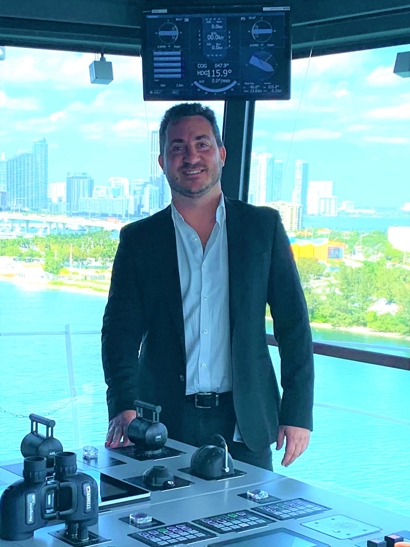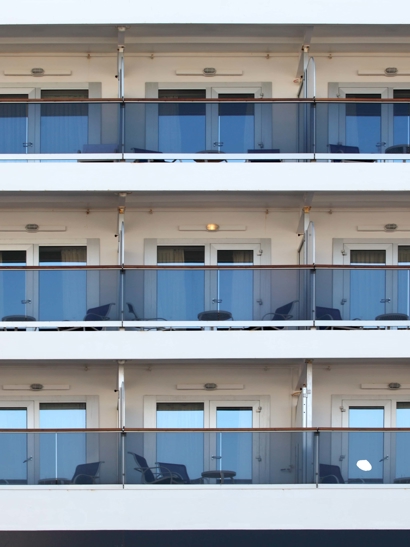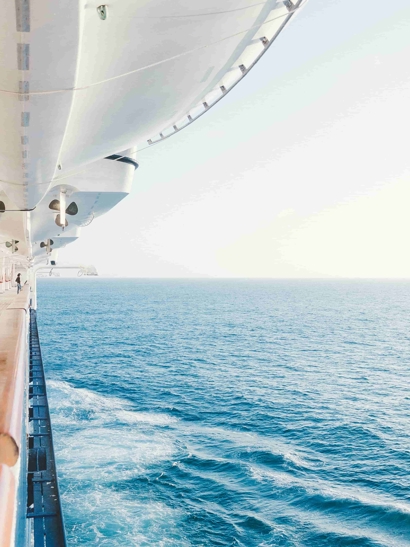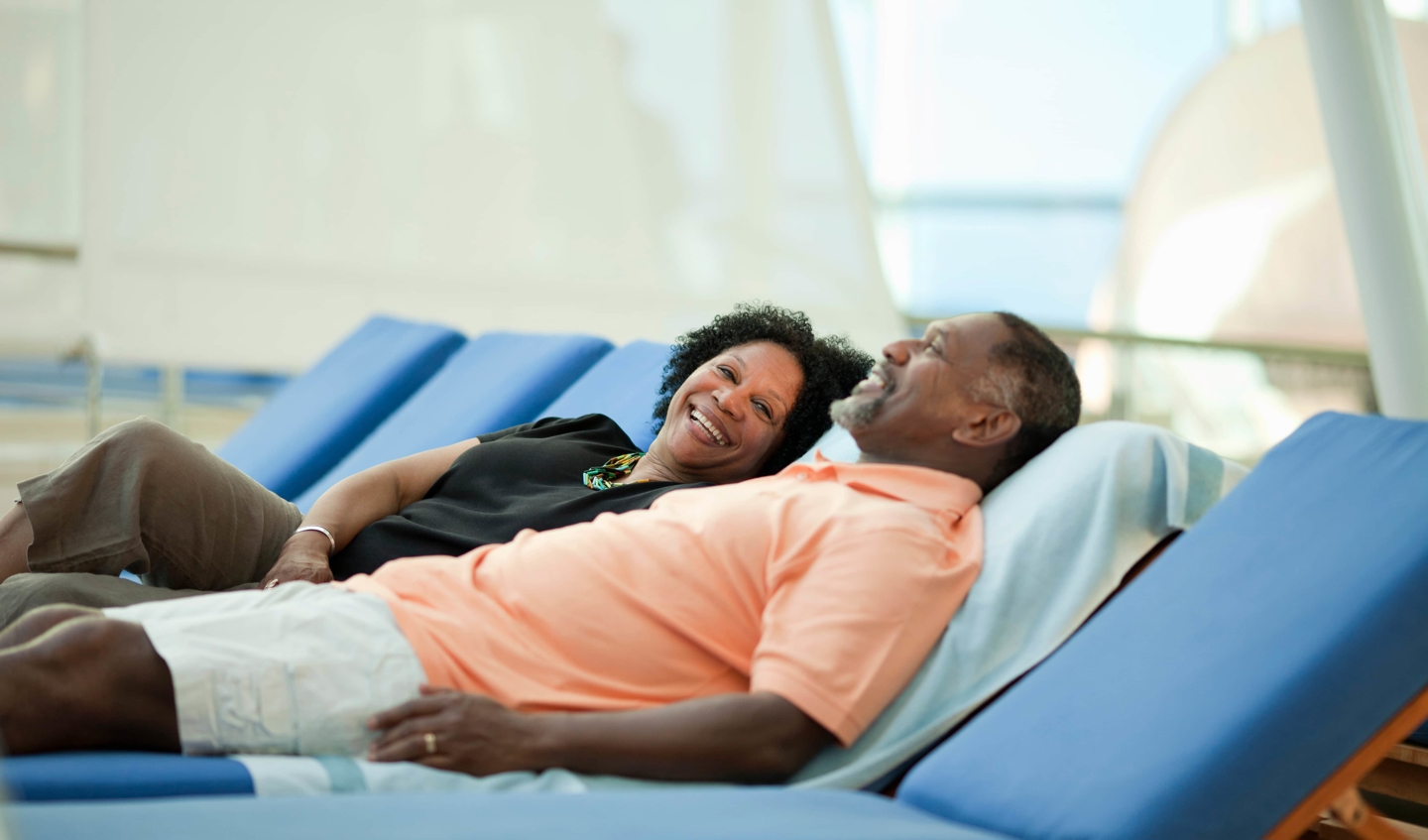Cruise is on shipping’s front line. That is how Lloyd’s Register’s new Miami-based Vice President, Head of Passenger Ships Segment, Michele Landro, views the sector he’s worked in for the last decade. “Cruise ships are unique in the maritime industry”, he told Horizons, shortly after joining LR. “Every day they have direct contact with thousands of people around the world”, putting them in the media spotlight and at the focus of public opinion everywhere they go. In the public’s eye, cruise vessels mirror shipping’s relationships with safety, the environment and sustainability, he believes.
But because of that status, it can provide an example for the rest of the shipping industry to follow. It gives Lloyd’s Register – the society that classes the largest number of cruise vessels worldwide – particular responsibility. “My goal is for Lloyd’s Register to provide leadership to the entire cruise industry and advance the route towards a more sustainable future”, Landro said.
“I am leading a segment where innovation is the norm, where the most innovative solutions to embrace change can be found. Cruise shipping is advancing green technologies and sustainability, for example as it researches both existing and future energy options."
He says sustainability is taking a dominant role in defining the future of the cruise industry, because public opinion expects it. "No industry in the world pays as much attention to sustainability as the cruise industry."
In the hospitality sector, for example, although large hotel chains publish sustainability reports, he suggests they could display more rigour and action. Major cruise operators, such as Carnival Corporation, Disney, MSC, NCL, Royal Caribbean and Virgin Voyages, on the other hand, are able to demonstrate their effort and investment in proven sustainability initiatives.
For example, MSC Cruises, in its latest TV advertising campaign, focused on its ambition to make its ships easier on the environment. Landro was particularly impressed by its work to create a private island in the Bahamas. MSC’s Ocean Cay was once an industrial sand-extraction zone; now it has been converted into a flourishing ecosystem, with support from Bahamian environmental experts.

“I'm leading a segment where innovation is the norm.”

Focus on reducing waste
Landro has a particular interest in addressing ship waste and will be chairing a session on waste management during the Seatrade Cruise Global exhibition and conference, taking place in Fort Lauderdale in March 2023. His panelists will examine how to minimise waste in the cruise industry, exploring opportunities to recycle materials, eliminate hazardous chemicals and improve waste management, and by building ‘circularity’ in design, increasing the productivity of resources and minimising carbon emissions.
“The world is moving from a linear economy”, Landro said. The ships designed today will be in operation for more than 30 years, but it's difficult to predict the demands that will be made of them in the future. Landro advocates a shift towards a circular economy approach. Achieving this will not be easy. Shipowners cannot do this on their own, he said, nor can class societies make it happen; instead, cross-industry collaboration is key.
He says vessel design will need a rethink so that all stakeholders – including shipowners, shipyards, OEMs, class societies and even recycling facilities – are involved in creating designs that can be upgraded or modified as requirements evolve. “Existing ships must be adaptable as new technologies emerge, because they have to be able to operate under the environmental goals of the future.”
Digital dividend
Digital solutions will also play an increasingly essential and critical role in ship design towards a fully integrated digital vessel, supporting the maritime industry to increase safety, reliability, and sustainability, he predicts. This will be especially so for cruise ships, thanks to their innovative electrical, propulsion, automation, and navigation systems, which create more opportunities to make the cruise industry safer, smarter, and more sustainable.
Consider HVAC systems, for example. He says smart systems focus energy use on the right area at the right moment, so heating, ventilation and air conditioning systems self-adjust according to demand driven by weather conditions and the number of people on board, with advanced sensors adjusting the temperature and ventilation of an area according to number of people present. Smart systems such as this enable more efficient use of generators capacity and save fuel.
Data solutions will also play a critical role in Lloyd’s Register’s future, he believes, thanks to the acquisition last September of the voyage compliance, safety and environmental solutions specialist, OneOcean. At the time, LR Group CEO Nick Brown said the acquisition would help its clients make better commercial decisions every day, reducing risk, improving operational efficiencies and meeting complex maritime regulatory requirements.
Landro highlighted some specific capabilities relevant to the cruise sector, in particular its support for environmental objectives, for both onboard and shoreside managers, helping them to clearly identify environmental zones to better plan safe emissions and discharges.
The cruise sector is setting itself environmental targets that anticipate possible future requirements from IMO, such as reducing carbon, introducing environmental innovations, implementing advanced water and wastewater management, and reducing underwater noise.
Inspiring all these trends is cruise shipping’s public-facing role. The sector’s future, he said, “is to compete on sustainability and the environment”, so operators are keen to show passengers what they are doing in those areas. But they also want to get passengers involved by using less plastic and less water to create less waste while they are on board and – equally important, he said – “to pass the message on when they are ashore.”









